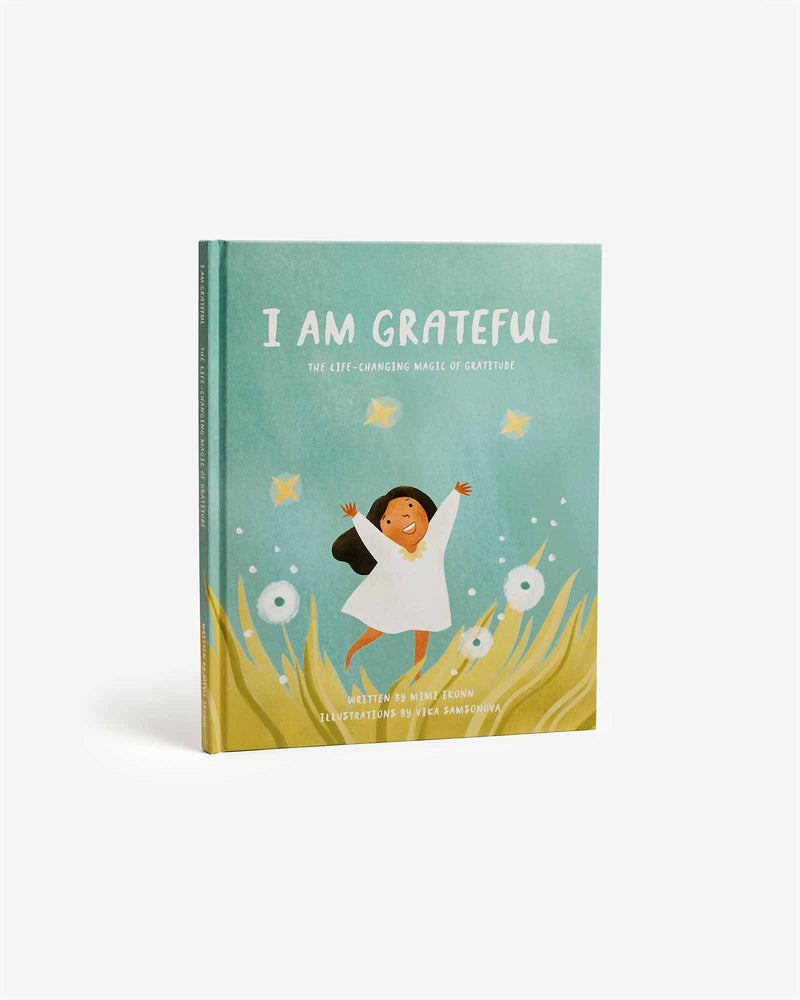4 Tips to Cultivate Gratitude & Grow Child’s Brain with Positivity
by Intelligent Change
We all want the best for the kids: to see them smiling, laughing, being honest, grateful, altruistic. We want to see them grow up to their maximum potential and become the best possible versions of themselves.
What can we do as parents and family members to achieve this? How to raise a grateful child and nurture their positivity?
Before we jump to answers, let’s break down some facts. Why is nurturing gratitude among children so important?
The Benefits of Gratitude for Kids
So far, research on gratitude has mostly been focused on the adult population. The results appear to be quite promising, as people who regularly practice gratitude tend to:
- Be happier and more satisfied with their lives;
- Be less stressed out;
- Have better sleep;
- Have better overall physical health;
- Lower the symptoms of depression and anxiety;
- Have improved relationships with other people.
Similarly to adults, children can also benefit from practicing gratitude from an early age. Scientific studies show that grateful children are:
- Happier;
- Less likely to have problems at school;
- More satisfied with their lives overall;
- More altruistic and cooperative
- More likely to stay away from drugs and alcohol;
- Моre skillful when it comes to handling their emotions.
Every parent’s greatest wish is for their child to be happy, and gratitude is a sure way towards achieving happiness. Here’s what you can do as a parent, family member and a friend to nurture gratitude in the kids.
Raising Grateful Children
1. Practice What You Preach
Res non verba: actions are worth more than words.
If you want to raise a grateful child, you need to be grateful first. Telling children to behave in a certain way means little if you don’t demonstrate it. Recent research about gratitude among children has revealed that grateful parents raise grateful kids: gratitude-oriented parents were more likely to expose their children to gratitude-related activities.
Whenever you thank your child, partner, and other people you encounter, you model polite and thankful behavior. If you’re keeping a gratitude journal or come up with gratitude-nurturing activities, your child will be more likely to value gratitude as a trait. Be the change you want to see.
2. Build a Gratitude Family Routine or Ritual
Routines and rituals are an essential part of every family’s life. They provide us with group identity, stability, and predictability, thus strengthening our sense of belonging.
Practicing gratitude can become a part of your family’s morning and evening routines. Grab your Five Minute Journal and Five Minute Journal for Kids and fill out the prompts together when you wake up and before going to bed.
What would make today great? What are you grateful for today?
Beginning and recapping each day with grateful thoughts will help your child cultivate and maintain a positive outlook on life and develop a positive mindset.
Another part of your gratitude family ritual can be reading books about gratitude. For this occasion we have created the beautifully illustrated children’s book. The I am Grateful book is designed to help children of all ages embody an attitude of gratitude while having fun with their parents and caretakers.
Other gratitude-centered activities to implement in your family routines: grateful Scavenger Hunt; gratitude story-time; gratitude arts and crafts, and so on.
Make these gratitude-centered activities designed for spending meaningful time with your family even more interesting by using the Mindful Focus Hourglass. This beautifully designed tool is here to help you find time for what really matters, organize your routines more meticulously, and focus on spending quality time without any distractions such as phones, computers, and other devices.
3. Teach Your Child Empathy
The first signs of processing complex emotional concepts such as empathy or gratitude occur very early in life. Children exhibit certain forms of empathy as early as the age of two. Although the ability to empathize with others does naturally occur through the development of cognition and emotions, it’s still desirable for a family to model this kind of behavior.
The parent’s role is to scaffold the child’s emerging knowledge and emotions through language and contact. A child can be taught empathy in a variety of ways. Toddlers love play-pretend games, for example. You can read simple stories together and then answer questions about the main characters’ feelings.
At the age of 6-10, children usually master their verbal skills. Their vocabulary grows quickly and they want to talk about everything. At this age, make sure to use empathetic language yourself and teach them how to name and talk about their feelings.
4. Encourage Their Participation in Activities Focused Around Gratitude

Gratitude-rich activities begin in our homes:
- Do chores together and say “thank you” after a job well done.
- Each family member can share three good things that happened that day.
- Write a good experience down on a piece of paper and put it in the gratitude jar. Open the jar at the end of the year and reflect on the positives of the previous year.
- Ask your child to think about someone they would like to thank and encourage them to write a letter or draw a picture expressing their gratitude.
- Talk to your child about how grateful you are for having them in your life. Take a few moments to appreciate your special bond.
As a parent, you can model empathetic and grateful behavior by encouraging your child to engage in volunteer work at school or in the local community. Volunteer work helps children develop an attitude of gratitude by motivating them to think about other people more deeply and by increasing their awareness about how lucky they are to live the life they live.
Also, they get to witness how their peers and other adults express gratitude while participating in these activities, and how others respond to it. This provides a model for how gratitude works in real life.
With human brains being prone to fall victim to negativity bias, maintaining a positive attitude of gratitude can be quite a challenge. Instilling an attitude of gratitude and growth mindset in your children from an early age by modeling it yourself and teaching your child to behave in an empathetic manner will help them grow up to become optimistic and positive adults.











